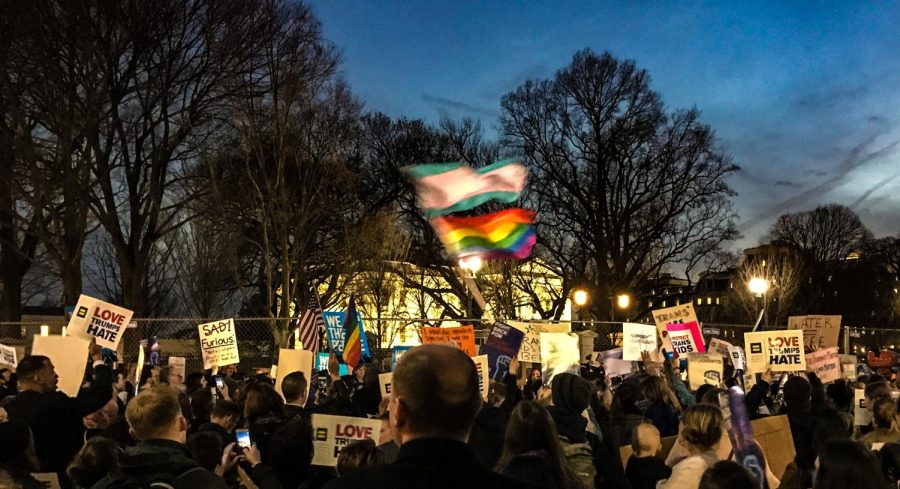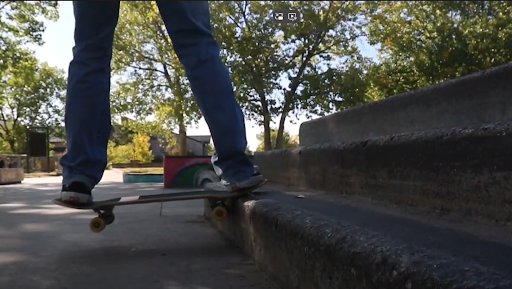The Effects of Florida’s “Don’t Say Gay” Law
May 15, 2022
Since the inception of the United States, rights within the LGBTQ community have taken the top spot for the most disputed American topic. With ever-changing laws and legislation, the freedoms of this community still remain inconclusive; and the most recent bill aimed at the LGBTQ community has queer youth feeling scared for the future of their rights.
On March 8th Florida governor Ron DeSantis signed the “Parental Rights in Education,” (nicknamed the “Don’t Say Gay)” bill into law. The now-law prohibits discussion of sexual orientation and gender identity in classrooms for grades kindergarten through the third grade. This passage has sparked nation-wide controversy, with millions voicing their disapproval, anger, and fear. Within all of the various complaints and arguments about the law, almost all share the same concern: “What does this mean for the future of the LGBTQ community?”
“Whenever the government says something that makes an oppressed group feel more marginalized, we feel it, you’re aware of it” said Mr. Pennington, a teacher at Cherokee Trail and one of the GSA sponsors. “It sends a very painful message to them like ‘you don’t belong,’ ‘you might not be accepted when you leave here,’ ‘you’re not safe,’ ‘your future families won’t be safe… And it has an effect because it sends a message.”
These powerful and harmful messages have traveled far across the country and found their way into the thoughts of queer youth at Cherokee Trail; and now they too are sharing the same fears alongside the rest of the country.
“I think they’re [Florida Legislatures] just not taking into consideration how many people there are, and how it will affect those people. And know that people that were scared of coming out before all this, it’s just gonna make it ten times worse because they’re not gonna wanna come out to anybody” said Maddi Gude (11), a student at Cherokee Trail and member of GSA.
Now more than ever have these fears been more valid. This is in part due to the fact that after the success of the Florida bill, almost a dozen other U.S. states have created their own sister bills, with the same morals and ideologies; among these states are Alabama, Arizona, Georgia, Iowa, Louisiana, South Carolina, Missouri, Indiana, Kentucky, Oklahoma, Tennessee, and Ohio. Colorado is showing signs of wanting to join in on the action.
“There’s a big debate going on right now in our state. There is a committee that’s revising the social studies standards because they were directed to do so by a state law. And initially the committee recommended that issues about race, gender, and sexual orientation be included in the K-12 curriculum.” said Pennington
With the sounds of oppression getting closer and closer to home and the future of their rights remaining unknown, students can’t help but to generate an endless list of questions about what this means for them. And among the wide array of uncertainties, one sticks out: “How would my school life be changed by this?” And just like the questions, the answers come in a large variety.
“I don’t think it’ll affect CT terribly badly, unless if it becomes a federal or state law,” said Gude (11). “A bill like this would never be passed here, but if something like this did ever come to Colorado, it would affect a lot of people, and there would be a lot of… backlash,” said Sparrow Thomas (12). “I guess I didn’t think about it… There’s groups of people here that are okay with [homosexuality], and there are people here that are definitely not okay with it. It really depends on personal opinion, and who you talk to,” said Charlie Meiger (11)
As for what the American people can do right now, the list is minimal. With the future of the LGBTQ+ community in the hands of the government, the outcome remains inconclusive. But while the citizens of the United States hold their breath, the people’s only option is to stand tall and firm within their beliefs, and lift the voices of others and make them listen. Because those that call upon the United States share the responsibility of making sure that the people keep the promise of “the land of the free.”



